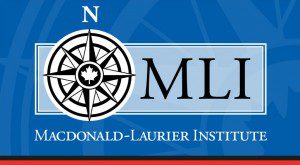 Former CSIS and CBSA officials Luc Portelance and Ray Boisvert urge Ottawa to put national security at the top of its priority list
Former CSIS and CBSA officials Luc Portelance and Ray Boisvert urge Ottawa to put national security at the top of its priority list
OTTAWA, Feb. 29, 2016 – Two former high-ranking government security officials are making recommendations for keeping Canadians safe from terrorist attacks.
In a new commentary paper for the Macdonald-Laurier Institute, Luc Portelance, former head of the CBSA, and Ray Boisvert, former Assistant Director of CSIS, urge the federal government to quickly take measures to better prevent, detect, deny and respond to emerging threats.
“Getting national security wrong can lead to devastating consequences, from privacy impacts to loss of life”, write Portelance and Boisvert.
To read the full commentary, titled “Toward a Serious Plan for Modernizing Canada’s Security Regime“, click here.
Recent acts of terrorism, including the Ottawa shooting in October 2014 and the San Bernadino and Paris attacks, have captured Canadians’ attention.
The previous government responded to the threat of terrorist attacks with Bill C-51, an attempt to address shortcomings in Canada’s national security regime.
“Getting national security wrong can lead to devastating consequences, from privacy impacts to loss of life”
But debate about the bill has largely been swept up in concern over the balance between security and personal freedoms. Lost in that noise, say Portelance and Boisvert, is the need for serious discussion of how the federal government modernize its systems for keeping Canadians safe.
“The risk, and we believe it is a serious one, is to allow a one-dimensional public debate on review and accountability, while neglecting the pressing need to ensure that Canada’s security apparatus is adequately equipped to protect Canadian interests”, they write.
Among the items the authors say the government must address:
- Parliamentary review: It’s time for a committee of security cleared parliamentarians to become part of the review process, say the authors.
- Invest in national security agencies: The new government should provide security organizations with the funding they need to address unprecedented pressures related to the volume and pace of their investigations.
- Examine lawful access: The technological sophistication of today’s extremists makes precisely targeted interception of communications, within a strict legal framework, a most necessary, albeit sometimes uncomfortable,reality.
- Invest more in data analytics: Higher levels of early detection and prevention require more resources and leading-edge technology devoted to analysing the data.
- Share information between agencies: There is a growing risk that information that could stop a devastating terrorist attack is not being shared among intelligence organizations. Certain investigative authorities under C-51 should be retained.
- Monitor outbound movements: Canada stands alone among its allies in its inability to monitor those leaving to fight in foreign conflicts. A structured exit program has not been implemented by Canada, creating a critical security gap.
- Improve our counter-radicalization strategy: Prevention must begin at home and involve commercial marketing and influence techniques.
- Recognize that the “away game” matters: It’s time to ask whether Canada requires a foreign intelligence service.
- Attack cyber threats: Cyber threats undermine our competitiveness and infringe the privacy of individual Canadians. The federal government must demonstrate greater leadership on the cyber file, and at a level of investment that is commensurate to our allies.
- Facilitate coordination between security agencies: Canada remains one of the few advanced nations that does not benefit from having an integrated office of national intelligence assessment.
“This new government has committed to real change”, write Portelance and Boisvert. “This must include responding effectively to the safety and security challenges affecting Canadians, while protecting fundamental and necessary rights and freedoms”.
***
Luc Portelance is the President/CEO of CrossPoint Integrated Strategies and the former President of the Canada Border Services Agency (CBSA). He is also the former Deputy Director, Operations of the Canadian Security Intelligence Service (CSIS).
Ray Boisvert is the President/CEO of I-Sec Integrated Strategies and a Senior Associate at Hill+Knowlton Canada. He is also the former Assistant Director, Intelligence of CSIS.
The Macdonald-Laurier Institute is the only non-partisan, independent national public policy think tank in Ottawa focusing on the full range of issues that fall under the jurisdiction of the federal government.
For more information, please contact Mark Brownlee, communications manager, at 613-482-8327 x105 or email at mark.brownlee@macdonaldlaurier.ca.




